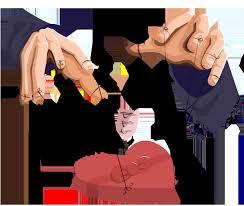|
This week, I had a conversation at
work about what it means to be an adult. An intern I work with
observed that adults just seem to fumble through life -
basically the only thing that changes as you grow up is that you
get better at faking it. I told her she was absolutely correct;
that's the biggest secret of "adulting". None of us know what
we're doing, we just sort of keep going forward until someone
tells us we're doing it wrong. Then we course correct, and start
the cycle all over again.
According to psychologists, imposter syndrome is characterized by a deep-seated fear that you have only succeeded due to luck, rather than talent, qualifications, or hard work. It's a very familiar phenomena to many - it's estimated today that up to 70% of people experience this feeling of being an imposter at least once in their lives, regardless of gender, profession, or socioeconomic status. Despite the widespread commonality of the
phenomena, it's still kind of a taboo topic. I speak from my
experience as white female who had worked in many male-dominated
settings. In those spaces, I've pushed myself to be more vocal,
more strong-willed, and more argumentative to make sure that my
opinions are heard. Simultaneously, I've struggled with feeling
like I have anything to contribute, like I've managed to wind up
somewhere I'm entirely unqualified for, and I'm terrified of
being found out.
Objectively, it's ridiculous. I'm an educated, clever, and talented woman. I'm a published author, an alum of Teach for America, and a respected consultant. Despite these facts, there are still mornings I wake up and wonder: when are they going to discover this is all a giant misunderstanding and that I don't belong. The reason I'm talking about this now is that it's important to normalize the conversation. Summer Twilight is about overcoming the labels we experience in our lives: titles of race, of wealth, of education, of gender, and of ability. A central theme - and one I try very hard to exemplify in my life - is that we are not bound by these labels, but to defeat them takes hard, constant work. And so here I am, acknowledging my accomplishments, and owning up to the fact that I don't feel like I deserve them. For me, the heart of fear comes back to perfection. I'm very type A - organized, obsessive, and analytical. I want do to things right, all the time. I hold myself to impossible expectations, and even though I know it's not reasonable, I refuse to change them. If things don't go perfectly, I'm disappointed, regardless of the actual level of success. It's something I've struggled with all my life, and will continue to wrestle with. Recently, I've been sharing my experiences and have discovered something wonderful: I'm not alone. That's the true strength of imposter syndrome - convincing the sufferer that they are the only one who feels this way, that they are completely isolated and the world is just waiting to catch them in a mistake. Plot twist: that's not true. Objectively, it's probably a pretty obvious statement, and that's okay. The power isn't just in hearing someone say, "you're not the only one". It's in reading experiences that resonate, that prove to you over and over that people can be incredibly accomplished, can seem like everything is going for them, and can simultaneously feel like an imposter. So if anything you've read here today resonates, hear me: you aren't the only one. If you think I've accomplished things (which, again, is objectively true), know that I'm also terrified of my luck running out. It doesn't matter how hard you worked for what you've obtained: imposter syndrome isn't logical. I believe you, and believe in you. Let's shed this label together. Comments are closed.
|
AuthorBridget is the author of Summer Twilight, available for purchase now! |
